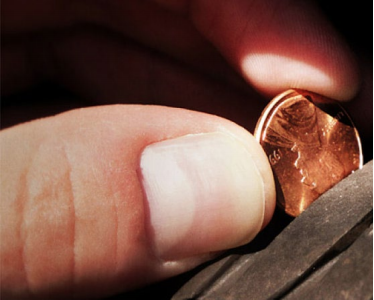Blog
3 Important Maintenance Tasks You Can Do Yourself
Content Courtesy of visordown.com
You don’t have to have the mechanical know-how of a MotoGP technician to perform simple home-servicing tasks; some decent tools and a little common sense are all you need to keep your bike in tip-top shape.
Ideally, get hold of a workshop manual for your machine for a better understanding of how each task should be carried out. Most will give pictures detailing each part of the process; a good manual will also list the tools you’ll need to complete the job. Find yours here.
Tools are like knives to a chef; using good ones is half the battle. Save the under-seat tool-kit for roadside emergencies and invest in quality for home maintenance.
If you’re lacking mechanical confidence, ask someone more experienced to help.
1. Tires
When was the last time you checked your bike’s tire pressures? It should be done weekly, but many of us forget or don’t bother with what is a crucial element of bike set-up.
Under-inflated tires affect handling and braking, as the lack of pressure means the tyre wall isn’t firm enough to properly cope with the forces on it. Over-inflation can reduce the size of the contact patch on the road, affecting grip.
Use a quality pressure gauge to accurately check the pressures. Consult the manual for the correct pressures. Remember, your tires may need more pressure if you regularly ride with a pillion passenger. Always check pressures when the tires are cold.
While you’re at it, check the overall condition and tread depth.

2. Chain Tension
Incorrect chain tension can make for premature sprocket and gearbox wear, rough gear-shifts and snatchy transmission. It can also reduce rear suspension travel and limit the life of the drivechain.
Check your workshop manual for how to adjust your bike’s chain to the correct tension. Remember to set the tension with some load on the bike (preferably with someone on it) as the chain will tighten up once a rider’s on-board.
Remember to also lubricate the chain while you’re at it, as this will prolong its life.
Refer to the owner’s manual for the correct torque settings for each bolt — that’s how much force to use when retightening. You’ll need a good torque wrench to do this properly.
Remember to also lubricate the chain while you’re at it, as this will prolong its life.
Check this video for a detailed explanation:
3. Battery
Most batteries are situated beneath a bike’s seat or petrol tank, so it’s hardly surprising many get overlooked when it comes to routine maintenance.
When a battery becomes very discharged, it usually means the end of its life, so routine checks should be made on its condition.
Ideally, remove the battery from its holder before carrying out any work. Remember, batteries contain strong acid, which can be harmful if it comes into contact with your skin.
Check the acid level in your battery by placing it on a level surface. If the level’s low then top up with de-ionised water before placing the battery on charge, using a car or motorcycle charger. Remember not to overfill, as acid will drain out the overflow pipe when you’re on the move. Many moden batteries are sealed, so you won’t be able to top them up.
Greasing your battery terminals before replacing it in the bike will help avoid corrosion. Just remember not to touch both terminals at the same time.

